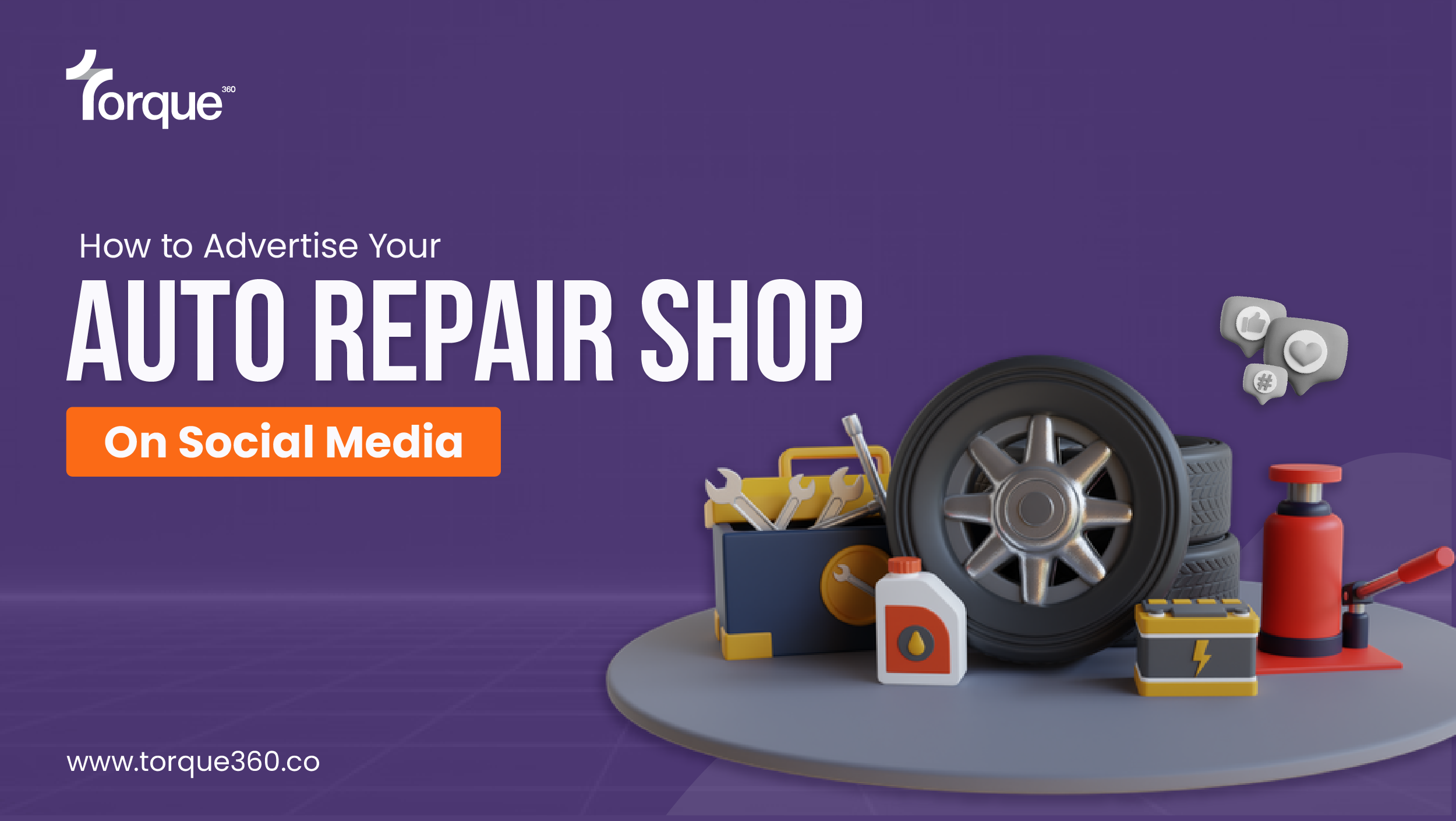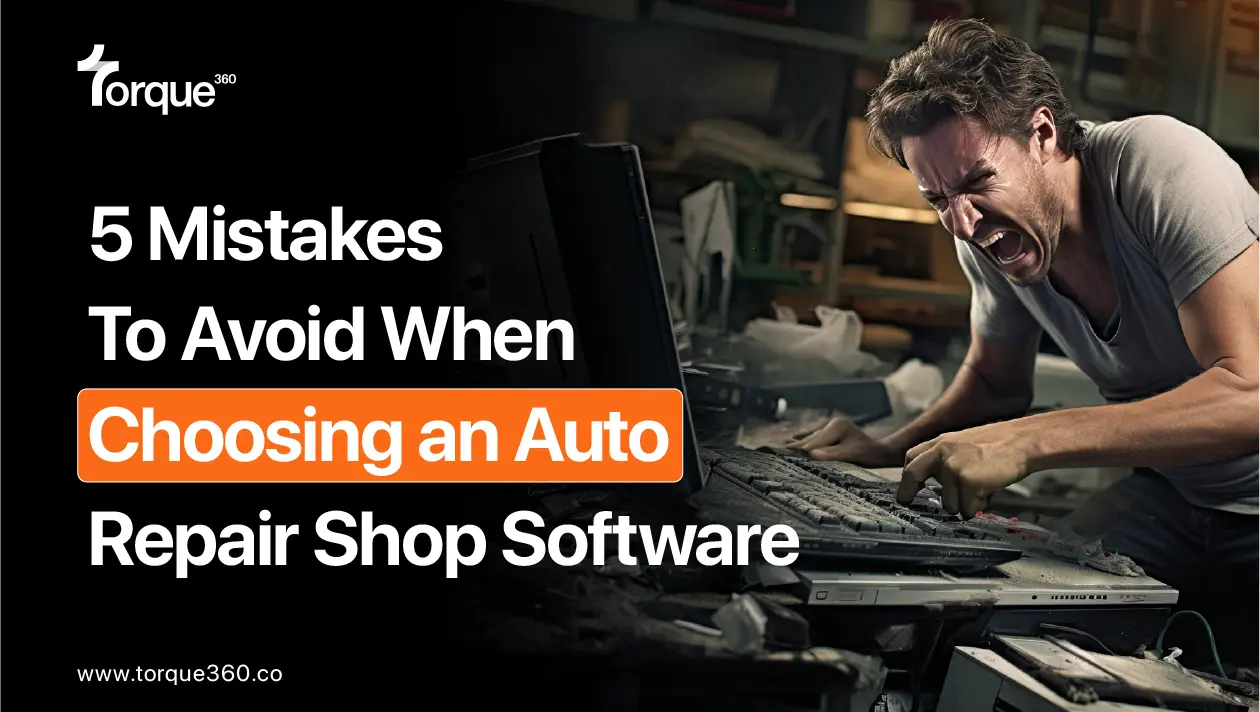Are you eager to expand your tire shop business in a rapidly evolving market? Successfully running a tire shop requires a strategic approach to navigate the increasing competition. To help you stay ahead and grow, explore our proven and powerful tips for expanding your tire shop business.
Want to grow your tire shop business? Book a personalized demo now
Understanding a Tire Shop Business
A tire shop sells tires and provides tire maintenance services for different types of vehicles, such as cars, trucks, bicycles, etc.
Tire shops offer a range of services, such as:
- Tire sales
- Tire installation
- Balancing
- Alignment
- Repairs
- Maintenance
Steps to Start a Tire Shop Business
Starting a tire shop business requires careful planning and execution. Here are essential steps to consider:
Step 1: Develop a comprehensive business plan outlining your goals, target market, location, budget, and financial projections. This plan will be your roadmap to success.
Step 2: Choose a legal structure for your business, such as a sole proprietorship, LLC, or corporation. Register your business and obtain any required licenses and permits.
Step 3: Select a suitable location for your tire shop. It should be accessible, visible, and ideally in a high-traffic area. Consider proximity to auto repair shops and dealerships for potential partnerships.
Step 4: Establish relationships with tire suppliers and stock your inventory. Negotiate favorable terms and consider offering a variety of tire brands and types to cater to different customers.
Step 5: Invest in the necessary tire mounting, balancing, alignment, and repair equipment. Ensure it’s of high quality and properly maintained.
Step 6: Hire knowledgeable staff with expertise in tire sales and services. Provide training to ensure they can provide excellent customer service.
Step 7: Create a marketing plan that includes online and offline strategies. Develop a professional website, leverage social media, and consider running promotional campaigns.
Step 8: Set up financial systems and processes for tracking income, operating expenses, and profitability. Monitor your budget and cash flow closely.
Step 9: Obtain insurance coverage, including liability insurance, to protect your business and assets.
Step 10: Familiarize yourself with safety and environmental regulations related to tire disposal and recycling. Ensure compliance with these regulations.
Tip 1: Embrace Technology and Automation
Technology is now changing the world. It is now playing a big role in the automotive industry. That’s why your tire shop needs to leverage tire shop software. It will save your time and improve efficiency and overall business.
There are many ways technology can streamline operations in a tire shop, such as:
- Modern technology enables tire shops to track tire inventory accurately.
- Online appointment scheduling systems allow customers to book tire services conveniently. This minimizes phone calls and optimizes your staff’s time.
- Advanced diagnostic tools and equipment can quickly identify tire issues, reducing diagnostic time and improving accuracy.
- CRM software helps you keep track of customer data, purchase history, and service preferences, allowing for personalized interactions and targeted marketing efforts.
- Technology can streamline internal communication, task management, and time tracking, making your staff more efficient.
Use Tire Shop Management Software (POS)
According to a survey by Intuit, businesses that use POS systems experience a 20% increase in efficiency.
- Tire shop POS software streamlines various tasks, including sales, inventory management, and customer data management, reducing manual labor and human errors.
- It offers real-time inventory tracking, helping you maintain optimal stock levels and reduce wastage.
- You can easily monitor the impact on sales trends, identify top-selling products, and create reports to make informed business decisions.
- POS software can provide valuable customer data, allowing you to segment your audience and tailor marketing efforts accordingly.
- Modern POS systems have robust security features to protect sensitive customer information and prevent unauthorized access.
Tip 2: Develop a Strong Online Presence
In today’s digital age, having a strong online presence is not just a luxury; it’s necessary for profitable businesses of all sizes and industries, including tire shops. This tip will delve into why establishing and maintaining a robust online presence is crucial for the growth and success of your tire shop business.
Here’s why having an online presence is vital:
- An online presence increases your shop’s visibility to a broader audience, including local customers searching for tire-related services.
- A well-maintained website and active social media profiles convey professionalism and trustworthiness to potential customers.
- With just a few clicks, customers can find essential information about your tire shop, such as location, contact details, hours of operation, and available services.
- Your competitors are likely online, so being absent can put you at a disadvantage.
Strategies for Creating and Maintaining a Professional Website:
User-Friendly Design:
Ensure your website is easy to navigate, with clear menus and an intuitive layout. Use high-quality images of your products and services.
Mobile Responsiveness:
A significant portion of internet traffic comes from mobile devices. Make sure your website is mobile-friendly.
Optimize for Search Engines (SEO):
Use relevant keywords related to tire services to improve search engine ranking in your content plan. Consider blogging about tire maintenance tips and FAQs to attract visitors.
Customer Reviews:
Include a section for customer reviews and testimonials to build customer trust with potential clients.
Online Booking:
If feasible, implement an online booking system for tire installations and services.
Tip 3: Offer a Variety of Tire Brands and Services
To attract and keep customers in your successful tire business, offering a wide range of tire brands and services is important. This tip explains why diversifying your offerings is crucial and provides guidance on choosing the right tire brands and offering additional services like tire repair, alignment, and maintenance.
Why Diversify Your Offerings
- Different customers have different preferences for tires and services. By offering a variety, you can meet each customer’s unique needs.
- In a competitive market analysis, having many tire brands and services sets you apart from shops with limited options. It gives customers a reason to choose your shop.
- Offering more services, like repairs and maintenance, can increase your income.
- Carrying reputable tire brands and providing various services builds trust with your customers. They’re more likely to return if they can find what they need at your shop.
Choosing the Right Tire Brands
- Understand local customer preferences and demand. Some areas might need specific types of tires, like winter or performance tires.
- Stock reliable tire brands with good reputations. Check customer reviews and industry ratings.
- Offer tires at different price points to accommodate various budgets. Include both high-quality budget options and premium brands in your inventory.
- Build strong ties with tire suppliers to get good deals and access exclusive offers and promotions.
Additional Services
- Attract customers with punctured or damaged tires by offering quick and affordable repair services.
- Misaligned wheels can wear tires unevenly and reduce fuel efficiency. Provide alignment services to keep vehicles running smoothly.
- Educate customers about the importance of regular maintenance like tire rotation and balancing to extend tire lifespan and save money in the long run.
- Bundle services like tire installation, alignment, and maintenance into value packages for customer convenience and cost savings.
Tip 4: Elevate Staff Training and Customer Service
Staff training and top-notch customer service are key in the tire shop industry. Here’s a concise breakdown:
Well-Trained Staff Enhance Customer Experience
- Product Expertise: Trained staff offer expert advice on tire choices, making customer decisions easier.
- Efficient Service: Training speeds up tasks like installation, repair, and maintenance, reducing customer wait times.
- Effective Problem Solvers: Knowledgeable staff can address issues confidently, ensuring customer satisfaction.
- Professionalism: Polite, respectful, and informed employees leave a positive impression.
Tips for Exceptional Customer Service
- Active Listening: Train staff to listen carefully and ask questions to understand customer needs.
- Empathy: Teach empathy, patience, and understanding when dealing with customer concerns.
- Clear Communication: Ensure staff can explain tire info in simple terms for customers.
- Consistency: Maintain consistent service by following standard procedures.
- Feedback: Encourage customer feedback for improvement.
Benefits of Ongoing Employee Training
- Adaptability: Training keeps staff up-to-date with industry trends and tech changes.
- Engagement: Learning opportunities boost employee motivation and satisfaction.
- Loyalty: Improved skills lead to better service, increasing customer loyalty.
- Competitive Edge: Well-trained staff set you apart from competitors.
- Risk Reduction: Training minimizes costly errors and accidents.
Tip 5: Effective Tire Shop Marketing
For growing your tire shop, marketing is vital. Here’s a concise overview:
Marketing Techniques for Tire Shops
- Local SEO: Optimize your online presence for local searches.
- Content Marketing: Share tire care tips on your website and blog.
- Social Media: Use platforms like Facebook and Instagram to showcase tires, share testimonials, and run promotions.
- Email Marketing: Send newsletters with updates and personalized content.
- Online Advertising: Invest in targeted online ads on Google and social media.
- Referral Program: Encourage satisfied customers to refer others for incentives.
Importance of Targeted Advertising
- Cost Efficiency: Targeted ads focus your budget on the target audience.
- Higher Conversions: Reach interested prospects for better conversion rates.
- Improved ROI: Targeting maximizes return on investment.
Successful Marketing Campaigns
Seasonal Promotions: Offer winter or summer tire specials.
Maintenance Clinics: Host events on tire care and safety.
Customer Testimonials: Showcase happy customers’ reviews.
Loyalty Programs: Reward frequent customers.
Online Contests: Engage audiences with online contests.
Community Involvement: Participate in local events for promotion
Tip 6: Build Strong Relationships with Suppliers
Establishing and nurturing strong relationships with your tire suppliers is critical to running a successful tire shop. This tip explores the significance of good relationships with tire suppliers, provides tips for negotiating better deals, and highlights how these relationships can lead to special offers for your business.
- Open Communication: Maintain open and honest communication with your suppliers. Discuss your needs, expectations, and any challenges you might face.
- Bulk Purchases: Negotiate bulk purchase agreements to secure better prices. Suppliers are often willing to offer discounts for larger orders.
- Payment Terms: Negotiate flexible payment terms that align with your cash flow. This could involve deferred payments, installment plans, or discounts for early payments.
- Loyalty Programs: Customer inquiries about supplier loyalty programs or incentives for consistent purchases. These programs may offer discounts, rebates, or special promotions.
- Regular Reviews: Periodically review your supplier relationships and performance. Discuss areas for improvement and seek feedback on your partnership.
Tip 7: Monitor and Analyze Key Metrics
In the tire shop business, success hinges on informed decision-making and a deep understanding of your operations. This tip underscores the importance of data-driven decision-making, discusses essential metrics to monitor in a tire shop business, and shares tools and methods for tracking and analyzing these metrics.
- Sales Performance: Track your sales figures, including revenue, profit margins, and sales growth over time. Identify your top-selling tire brands and services.
- Inventory Management: Monitor inventory turnover rate, stock levels, and the age of inventory. Ensure you have a balanced inventory to meet customer demands without overstocking.
- Customer Retention: Measure customer retention rates, repeat business percentages, and customer lifetime value. Happy, loyal customers are key to long-term success.
- Marketing ROI: Analyze the effectiveness of your marketing campaigns by tracking the return on investment (ROI) for each marketing channel. Identify which channels yield the best results.
- Employee Productivity: Measure employee productivity by analyzing metrics like sales targets per employee, service completion times, and quality customer service ratings.
FAQs:
How do you open a tire shop business?
-Research and plan, meet legal requirements, choose a good location, secure inventory and equipment, hire staff, and market your shop.
Is owning a tire shop profitable?
-Profitability varies but can be good with proper management, customer service, and competitive pricing.
How to grow a tire business?
-Focus on great service, offer more services, improve online presence, run marketing campaigns, diversify products, and network with local businesses.
What tools do you need to change a tire?
-Lug wrench, jack, spare tire, wheel chock (optional), flashlight, and gloves. Follow your vehicle’s manual or seek professional help if unsure.
Wrapping Up!
Use the above given tips to grow your business and gain more profit in a very short time. We hope this blog has helped you in growing your business.
You can also take your auto repair business to the next level with good auto repair management software. Moreover, torque 360 offers all-round automotive management software as well. It includes many features such as scheduling, invoicing, estimating, digital vehicle inspection, repair order management, technician portal, POS integration, and marketing solutions.





